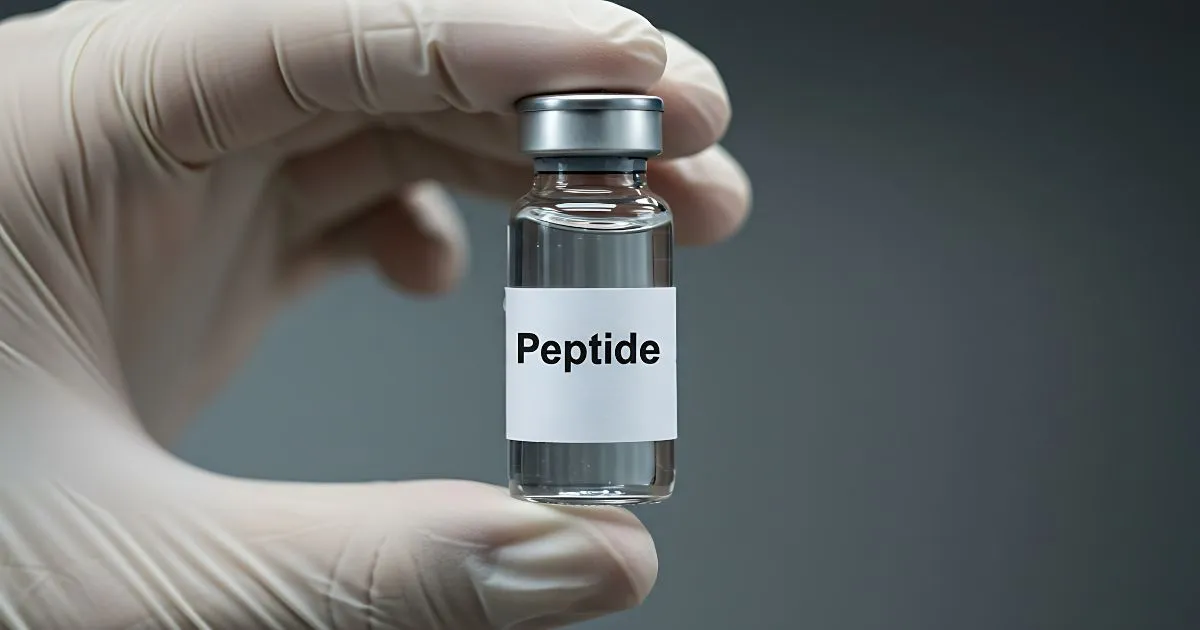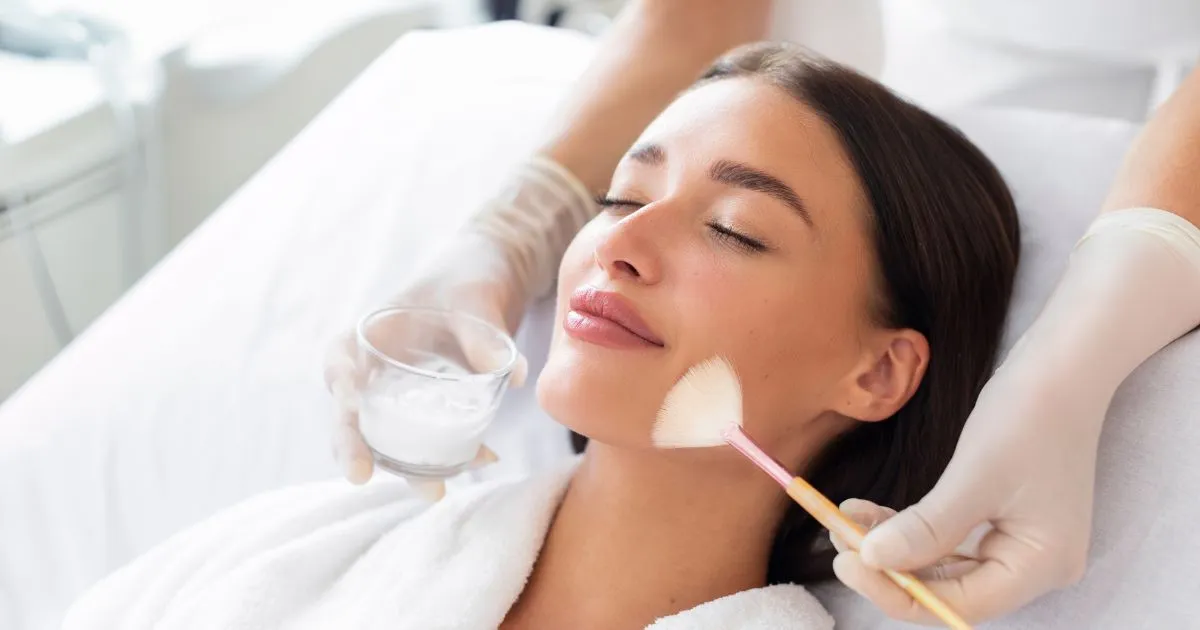As we age, our skin undergoes various changes that can lead to wrinkles, sagging, and loss of elasticity. While this process is natural, advancements in skincare science have revealed powerful ingredients that can help combat these signs of aging. Among these, peptides have emerged as a promising solution for maintaining youthful, healthy skin. In this article, we’ll explore the role of peptides in aging and skin health and how they can be incorporated into your skincare routine for optimal results.
Understanding Peptides
Before diving into their benefits, it’s essential to understand what peptides are:
Peptides are short chains of amino acids, which are the building blocks of proteins. These molecules play crucial roles in various biological processes throughout the body, including skin health and function. When it comes to skincare, peptides act as messengers, signaling skin cells to perform specific functions, such as producing collagen, elastin, and other proteins essential for maintaining healthy, youthful-looking skin.
The Connection Between Peptides and Skin Aging
As we age, our skin’s natural production of essential proteins like collagen and elastin begins to decline. This decrease leads to many of the visible signs of aging, including:
- Fine lines and wrinkles.
- Loss of skin firmness and elasticity.
- Uneven skin texture.
- Dullness and loss of radiance.
Peptides can help address these concerns by:
Stimulating Collagen Production- Specific peptides, known as signal peptides, can trigger the skin’s fibroblasts to produce more collagen. This increased collagen production helps improve skin firmness and reduce the appearance of fine lines and wrinkles.
Enhancing Elastin Synthesis- Some peptides can also stimulate the production of elastin, a protein that gives skin its ability to snap back into place. This helps maintain skin elasticity and prevent sagging.
Improving Skin Barrier Function- Peptides can strengthen the skin’s natural barrier, helping to retain moisture and protect against environmental stressors.
Reducing Inflammation- Some peptides have anti-inflammatory properties, which can help calm irritated skin and reduce redness.
Supporting Wound Healing- Specific peptides play a role in the skin’s healing process, which can be beneficial for addressing acne scars and other types of skin damage.
Types of Peptides in Skincare
There are several types of peptides used in skincare, each with specific functions:
Signal Peptides- These peptides send messages to skin cells, encouraging them to produce more collagen, elastin, and other beneficial proteins.
Example: Palmitoyl Pentapeptide-4 (Matrixyl)
Carrier Peptides- These peptides help deliver trace minerals to the skin, which are necessary for wound healing and enzymatic processes.
Example: Copper Peptides
Enzyme Inhibitor Peptides- These peptides work by inhibiting enzymes that break down collagen and other essential skin proteins.
Example: Acetyl Hexapeptide-8 (Argireline)
Neurotransmitter Inhibitor Peptides- These peptides can help relax facial muscles, reducing the appearance of expression lines and wrinkles.
Example: Acetyl Octapeptide-3 (SNAP-8)
Antimicrobial Peptides- These peptides have antibacterial properties and can help protect the skin from harmful microorganisms.
Example: Nisin
Benefits of Peptides for Skin Health
Incorporating peptides into your skincare routine can offer numerous benefits:
Reduced Appearance of Fine Lines and Wrinkles- Peptides can help plump up the skin by stimulating collagen production and reducing the appearance of fine lines and wrinkles.
Improved Skin Firmness and Elasticity- The increased production of collagen and elastin helps maintain skin structure and elasticity, resulting in firmer, more youthful-looking skin.
Enhanced Skin Barrier Function- Peptides can strengthen the skin’s natural barrier, helping to lock in moisture and protect against environmental stressors.
Smoother Skin Texture- By promoting cell turnover and collagen production, peptides can help improve overall skin texture.
Brighter, More Even Skin Tone- Some peptides can help regulate melanin production, improving the appearance of hyperpigmentation and uneven skin tone.
Calmed and Soothed Skin- Certain peptides’ anti-inflammatory properties can help reduce redness and irritation, making them beneficial for sensitive or reactive skin types.
Incorporating Peptides into Your Skincare Routine
To reap the benefits of peptides for aging and skin health, consider the following tips:
Choose the Right Products- Look for serums, moisturizers, or targeted treatments that contain peptides. These products are often more effective than cleansers or toners, as they remain on the skin longer.
Layering- Apply peptide products after cleansing and toning but before heavier creams or oils. This allows for better penetration into the skin.
Consistency- Like most skincare ingredients, peptides require consistent use over time to show significant results. Be patient and use peptide products regularly for at least 4-6 weeks.
Combine with Other Beneficial Ingredients
Peptides work well in conjunction with other anti-aging ingredients like antioxidants, hyaluronic acid, and niacinamide.
Sun Protection- Always use sunscreen during the day to protect your skin and maximize the benefits of your peptide products.
Potential Side Effects and Considerations
While peptides are generally considered safe for most skin types, it’s essential to keep the following in mind:
Allergic Reactions- As with any skincare ingredient, there’s a potential for allergic reactions. Always patch-test new products before applying them to your face.
Pregnancy and Breastfeeding- Consult with a healthcare provider before using peptide products if you’re pregnant or breastfeeding.
Overuse—Using too many peptide products simultaneously may cause skin irritation. Start with one product and gradually incorporate others as needed.
Quality Matters- Choose products from reputable brands that use stable, effective peptide formulations.
The Future of Peptides in Skincare
As research in the field of peptides continues to advance, we can expect to see even more innovative applications in skincare:
Customized Peptide Formulations- Tailored peptide blends are designed to address specific skin concerns and individual needs.
Enhanced Delivery Systems- Improved technologies to help peptides penetrate deeper into the skin for more effective results.
Combination Therapies – Integration of peptides with other cutting-edge skincare technologies, such as stem cell therapy or nanotechnology.
Targeted Solutions –Development of peptides designed to address specific skin issues, such as hyperpigmentation or acne.
Be-You-Tiful, Be You at Pure Youth Wellness & Aesthetics Today!
Peptides play a crucial role in maintaining skin health and combating the signs of aging. By stimulating collagen production, enhancing skin barrier function, and providing numerous other benefits, these potent molecules offer a science-backed approach to achieving healthier, more youthful-looking skin.
When incorporating peptides into your skincare routine, remember that consistency is critical, and results may take time to become visible. For optimal results, combine peptide products with a well-rounded skincare regimen that includes proper cleansing, moisturizing, and sun protection.
As our understanding of peptides and their effects on skin health continues to grow, we can look forward to even more advanced and effective skincare solutions. Whether you’re looking to prevent the signs of aging or address existing skin concerns, peptides offer a promising avenue for achieving and maintaining healthy, radiant skin at any age.







